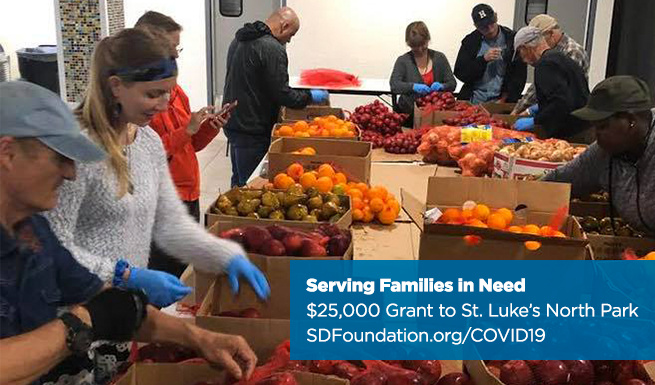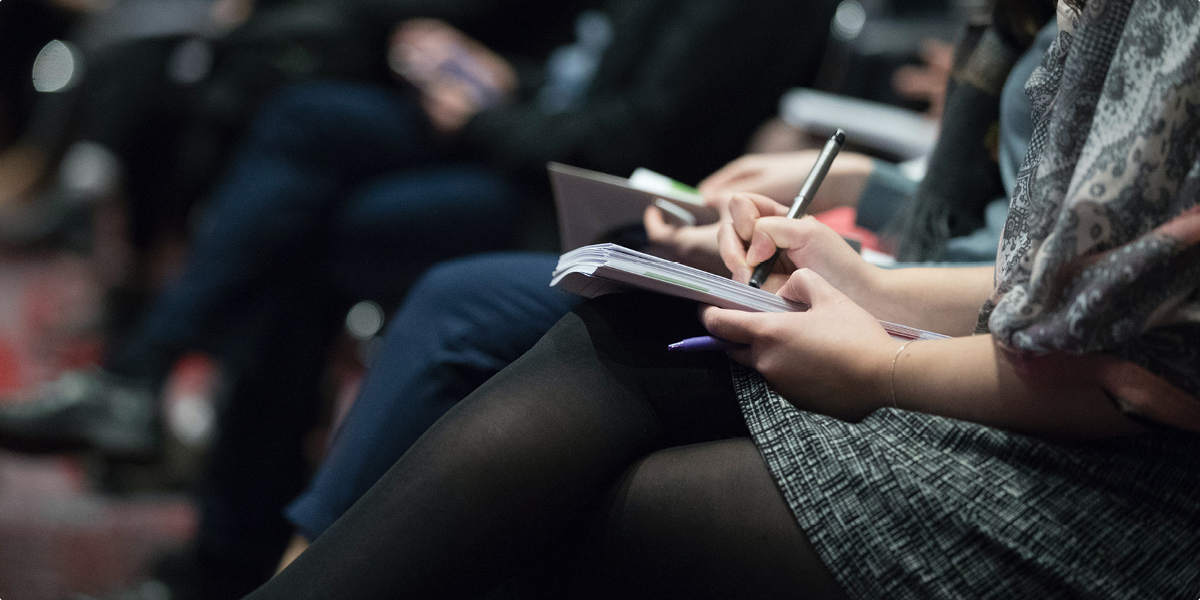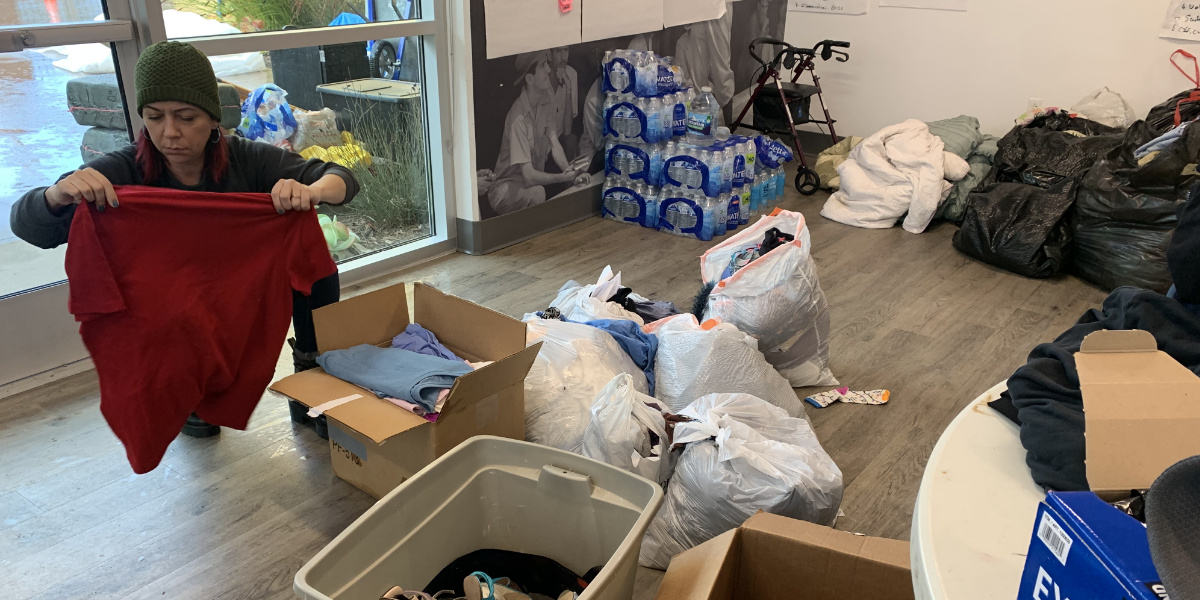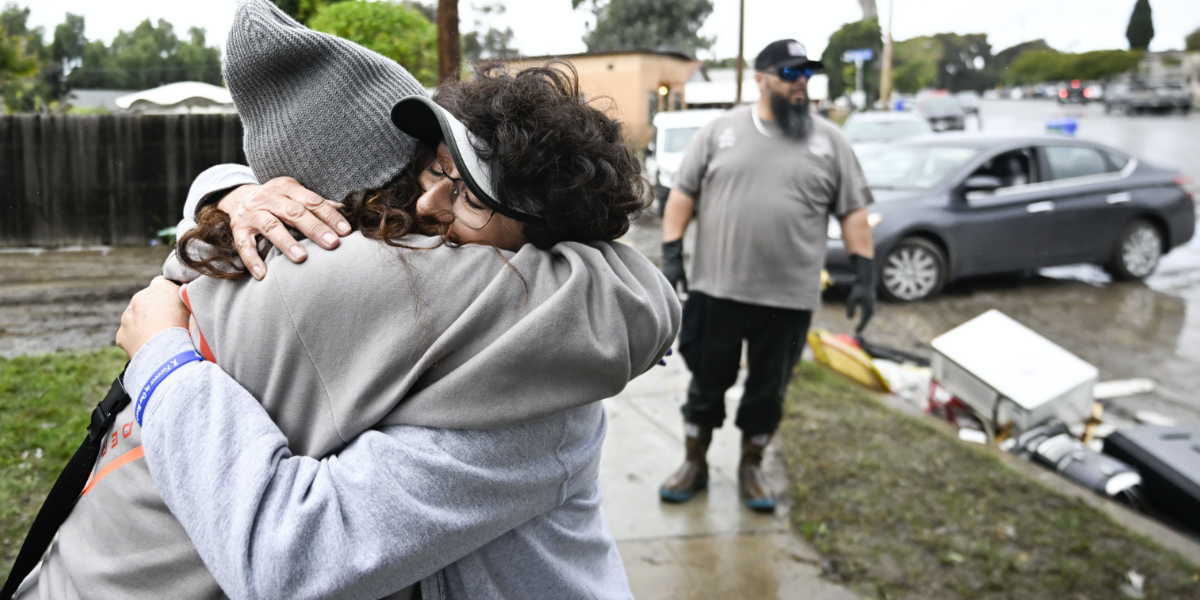Now a pastoral care minister at St. Luke’s North Park, Katherine Bom knows first-hand about the challenges refugees must conquer.
For Bom, who fled the carnage of the Second Sudanese Civil War with her mother and five siblings in 1993, those challenges meant enduring a month-long journey from her hometown of Malakal in the Upper Nile region of what is now South Sudan to the Sudanese capital of Khartoum, where the family hopped on a train to Cairo and waited five years before being cleared to resettle in San Diego.
“It takes a good 10 years to get used to a new system, to get used to the culture,” said Bom, who didn’t speak English before she came to California. “Sometimes people don’t understand what it’s like. We left a war. We lost everything. We had nothing. When we were in Egypt, we couldn’t even go to school.”
Today, Bom is on the front lines at St. Luke’s in helping refugees from Sudan and the Congo deal with a new challenge: the impact of the COVID-19 pandemic. Thanks to a $25,000 donation from San Diego COVID-19 Community Response Fund at The San Diego Foundation, St. Luke’s has been able to manage increasing numbers of people who have been furloughed or otherwise need help with food, rent, or utilities.

St. Luke’s has seen the number of families at a weekly food distribution nearly double to 140 since the pandemic and furloughs began, and Bom is working with more than 30 families in which at least one person lost their job and are lacking a computer to fill out unemployment and public assistance forms.
“I can relate to their stories because of my experiences, and I want to pay back the help that my family received,” Bom said. “Some of these people never went to school and relied on friends to help them navigate. They don’t know how to log on or how to apply for unemployment.”
St. Luke’s North Park is far more than a place of worship. It is a primary cultural center for South Sudanese Americans in San Diego, and more recently, for Congolese refugees.
The church recently became the operator of a long-running food distribution program originally organized by RefugeeNet. It provides a home for 27 recovery groups that meet weekly and continues to provide a safe meeting space by limiting group sizes, enforcing physical distancing protocols, and sanitizing surfaces religiously. And it hosts the Uptown Community Center, which serves more than 2,000 homeless and very-low income people each year.
Too often, refugees can become an afterthought during a crisis. Investing in the region’s immigrant population, however, makes sense. According to one study, foreign-born residents in 2016 contributed $54.3 billion to San Diego County’s gross domestic product and paid $7.5 billion in federal taxes.
Investing in the region’s nonprofits also makes sense, and more than 3,000 individuals, companies, foundations, and donor advised funds have contributed in excess of $14 million to the San Diego COVID-19 Community Response Fund, allowing it to distribute more than $11 million in grants to date.
The giving underscores how U.S. community foundations are moving decisively to help those in need during the COVID-19 crisis. In fact, according to a recent survey by the Community Foundation Public Awareness Initiative, donor-advised funds at 64 U.S. community foundations granted $821.9 million to nonprofits in March and April, an increase of $302.5 million compared to the same period a year ago.
Help San Diego refugees and immigrants in need by donating today.




